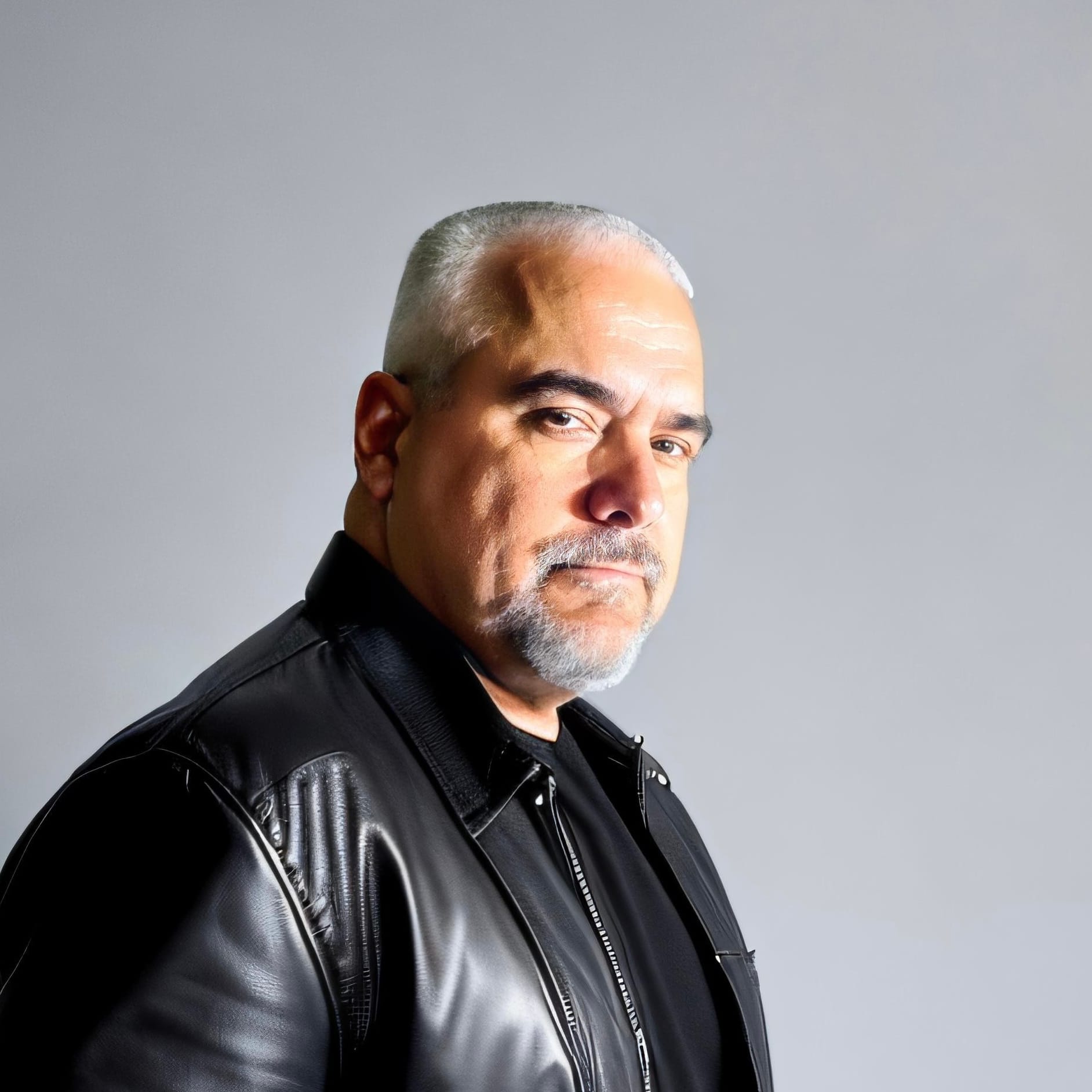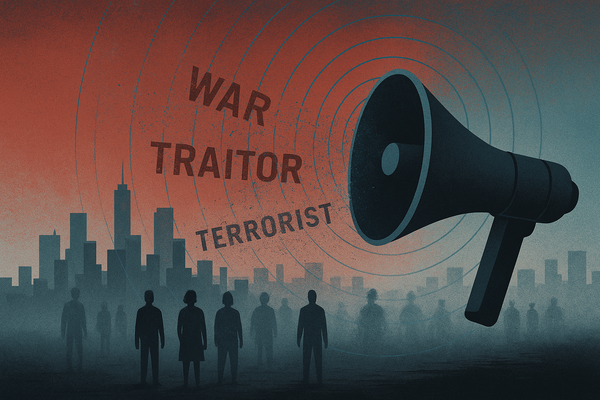
Ten Lessons From Orwell That America 2025 Is Failing to Learn
War Is Peace. Freedom Is Slavery. Ignorance Is Strength.
George Orwell’s slogans weren’t meant as prophecy. They were meant as diagnosis: how fragile truth becomes when power is unchecked.
In 2025, the United States is watching an administration test the boundaries of executive authority in ways that feel uncomfortably close to Orwell’s warnings. The President and his advisors have deployed a masked, military force into American cities in the name of immigration enforcement - conceding that U.S. citizens may get swept up in the process.
Just this week at Quantico, the President told senior generals that “dangerous” U.S. cities like Chicago, Memphis, and Portland should serve as “training grounds” for a “war from within.” He cast domestic unrest as an invasion and ordered Guard units to prepare for “civil disturbances.” Defense Secretary Pete Hegseth backed him, demanding a more lethal posture from the armed forces and warning dissenting officers to resign (AP, Politico, Reuters).
At the same time, political opponents are being branded “terrorists” and “traitors.” This is not just overheated rhetoric. It is a tactic: eroding the line between dissent and treason, laying the groundwork for wartime executive powers without Congress. And it fits into a larger pattern, a “deportation machine” being assembled piece by piece, with elements of military, private, and federal force coalescing into one of the largest enforcement structures in modern history.
Orwell’s Ten Lessons for 2025 America
1. From Newspeak to “Terrorist”
In 1984, “Newspeak” reduced language until certain ideas became unthinkable. Today, entire groups of Americans are recast as “terrorists.” The effect is the same: once opposition is linguistically criminalized, dissent itself becomes a prosecutable act.
2. A Forever War at Home
The Party thrived on perpetual war. Here, the “war on terror” has morphed into a “war on immigrants” and now into a “war on Democrats.” If every election is reframed as an existential fight against “traitors,” then abuses of power become not excesses but necessities.
3. Building a Deportation Army
Mass deportation programs risk creating an enforcement machine — part federal, part private, part military — with loyalty concentrated in the executive branch. As I explored in “The Deportation Machine”, it may start with immigrants, but history tells us such tools rarely stay confined to their original target.
4. Rewriting the Past
“Who controls the past controls the future,” Orwell wrote. Our present-day battles over curricula, monuments, and “patriotic education” are less about history and more about who gets to define reality. Once the past becomes negotiable, so does the future.
5. Doublethink as Policy
“Defend freedom” while suppressing speech. “Protect democracy” while undermining elections. Doublethink — holding two contradictory beliefs simultaneously — is no longer a glitch in our politics. It is strategy.
6. Authoritarianism in Plain Clothes
Totalitarianism will not march in wearing jackboots. It will arrive in a suit, carrying a Bible or a flag, promising “safety” or “order.” As Orwell showed, power is maintained not just by violence but by persuading people that submission is virtue.
7. Propaganda as Entertainment
Where Orwell had the “Two Minutes Hate,” we have outrage cycles engineered by algorithms. Rage is addictive, profitable, and politically useful. It keeps us clicking, swiping, and shouting - and too distracted to notice rights slipping away.
8. Truth as Marketplace
Winston Smith’s job was to rewrite facts. Ours is harder: we are bombarded with competing realities. Research from MIT shows falsehoods spread online up to six times faster than truth . In this chaos, when leaders weaponize misinformation, the effect is the same as Orwell’s Ministry of Truth - citizens no longer know what’s real.
9. Resistance Still Matters - But It Costs More Now
Winston found meaning in small acts of rebellion, a diary, a forbidden love. Today, resistance looks like journalists, whistleblowers, civil servants, and ordinary citizens risking careers, reputations, and safety to tell the truth. The system doesn’t need to jail dissenters anymore; it can erase them algorithmically, professionally, or socially.
10. Complacency Is the Real Danger
Orwell’s greatest insight wasn’t the boot; it was the shrug. Apathy is the oxygen of authoritarianism. Every time we excuse cruelty, accept surveillance, or ignore corruption, we normalize what once seemed intolerable. That is how liberty erodes, not with a crash, but with a sigh.
Why This Matters Now
The tools of authoritarianism are not abstract. They are being built in real time: military deployments framed as immigration enforcement, rhetoric that casts citizens as “terrorists,” enforcement structures that bypass Congress. Today, Trump told 800+ of our top military leaders that maybe they should use US Cities as training grounds for troops.
Historian Timothy Snyder, in On Tyranny: Twenty Lessons from the Twentieth Century, warns that democracy is never self-sustaining. “Do not obey in advance,” he writes. His lessons - “Defend institutions,” “Beware the one-party state,” “Believe in truth” - echo Orwell’s with one crucial difference: Snyder reminds us there is still time. The lesson is not despair, but vigilance.
Takeaway
1984 was not a prophecy. It was a manual for recognizing the signs of decay in free societies. In 2025 America, nearly every warning light Orwell described is blinking.
The flirtation with military force against civilians, the branding of political opponents as enemies of the state, and the construction of a deportation machine are not isolated events. They are steps in a process Orwell mapped out and Snyder warns against.
The question left to us is not whether Orwell’s world could happen here. The question is whether we will recognize it if it does - and whether we will resist it before it’s too late.
Share this article
Written by
Join the conversation
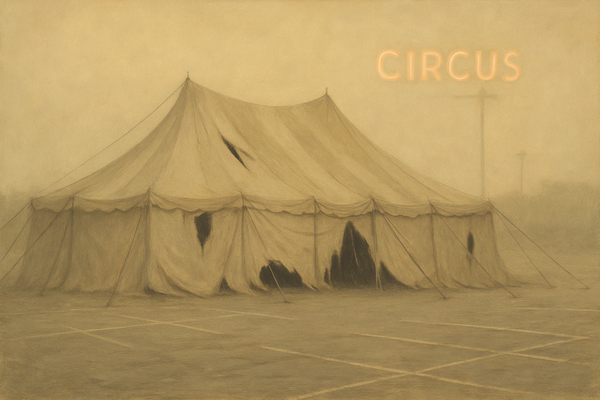
When Democracy Fails: What the DNC Still Does Not Understand
On The Weekly Show with Jon Stewart, Democratic Party Chair Ken Martin was handed an opportunity: lay out what Democrats stand for heading into 2026. Instead, what viewers saw was the emptiness of consultant-speak and the absence of a vision.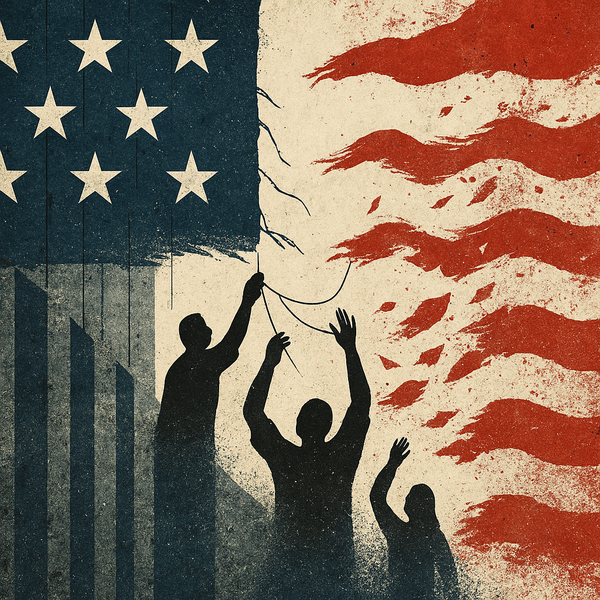
Crowd-Sourcing Democracy: How the Exhausted Middle Can Rebuild Trust
American politics is unraveling inside our closest circles. Families and friendships that survived disagreements for decades are now breaking apart. What once felt like arguments about taxes or foreign policy are now fights about reality itself. The far right has become louder, comfortable speaking openly about racism, exclusion, and authoritarian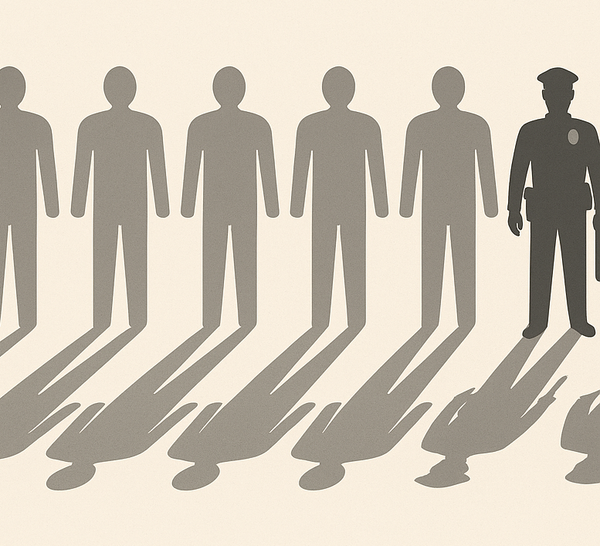
The Deportation Machine We’re Building
ICE’s civilian recruitment and expanding detention echo the patterns of history—and offer a warning we can’t ignore. We are not just building detention centers. We are building a machine of power that will not sit idle. Ordinary Men, Extraordinary Lessons In 1992, historian Christopher Browning published Ordinary

